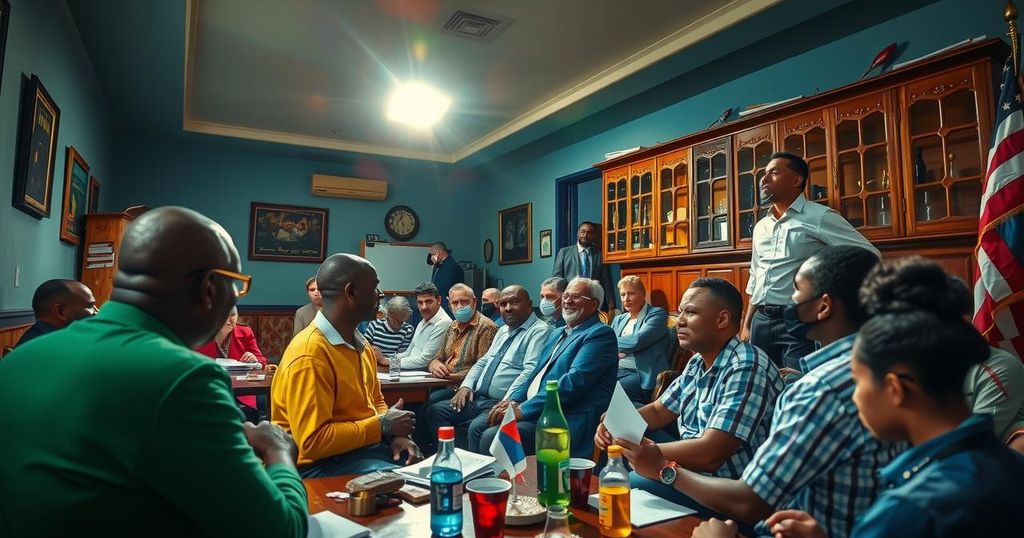Mauritius is conducting parliamentary elections with a focus on a pressing cost of living crisis. Approximately one million voters will elect 62 members to parliament amid a wire-tapping scandal affecting Prime Minister Pravind Kumar Jugnauth’s party. Campaign tensions are high with increased security, while opposition parties promise targeted economic reforms. Results are expected the day after the election.
Mauritius has commenced its parliamentary elections, with approximately one million registered voters anticipated to cast their ballots for 62 members of parliament. The elections are significantly influenced by a pervasive cost of living crisis, which is at the forefront of voters’ concerns. Polls opened at 7 a.m. local time and are set to close at 6 p.m. on Sunday. This marks the 12th election in the nation since its independence in 1968. Results will be announced the following day. Despite being one of Africa’s most prosperous nations, many Mauritians feel disconnected from the predicted economic growth of 6.5 percent this year. Prime Minister Pravind Kumar Jugnauth’s party, the Militant Socialist Movement, alongside opposition parties, have promised to tackle the ongoing economic challenges as they proceed into the elections. This election follows a recent historic agreement concerning the Chagos Islands, with implications on national sentiment and political stability. However, the election campaign has faced turmoil due to a wire-tapping scandal involving leaked phone conversations of prominent figures. To manage the fallout, authorities attempted to impose a social media ban, but this decision was quickly overturned following public and media backlash. Security has been heightened at polling stations as concerns about electoral integrity arise, with police involvement underscoring the tense atmosphere surrounding the elections. The African Union has sent observers to ensure fair proceedings in this notable democratic exercise in the region.
Mauritius, located in the Indian Ocean, is celebrated as one of Africa’s stable democracies, boasting a robust economy driven by tourism, offshore finance, and textiles. This upcoming parliamentary election is pivotal, occurring in the wake of a significant agreement related to the sovereignty of the Chagos Islands, which has sparked both national pride and political controversy. The cost of living crisis has emerged as a critical issue for voters, influencing political discourse and campaign promises from both the ruling and opposing parties. Thus, this election represents a crucial juncture for the nation’s future direction and governance.
In conclusion, the parliamentary elections in Mauritius are set against a backdrop of economic challenges and political scandals. The cost of living crisis remains the primary concern for voters, influencing the strategies of both the ruling party and the opposition. As the nation faces this critical electoral moment, the outcomes will significantly shape its governance and policies in the years to come. The integrity of the election process is paramount, as the eyes of the regional and international communities remain focused on Mauritius.
Original Source: www.aljazeera.com






